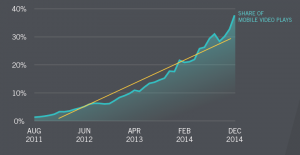At first glance, it’s easy to say “been there, done that” about Returnal. A PlayStation 5 exclusive from Finnish developer Housemarque, best known for shooters like Super Stardust HD, the game puts you in the shoes of a lone female space explorer who crash lands on an alien planet. Just about everything there wants to eat you alive — but more surprising is the realization that you’re stuck in a time loop. Every death brings you right back to the site of the crash, with only a handful of items and what remains of your dignity.
From that description alone, you can take your pick of references from Alien, Metroid, Groundhog Day and Edge of Tomorrow. The influences get even more specific the deeper you go, with space horror imagery from Event Horizon and the psychological intrigue of David Lynch. What makes it special, though, is how all of those disparate elements interact. It’s at times frustratingly difficult, and its systems are sometimes tough to suss out. But I just can’t stop playing it.
Similar to last year’s Hades, Returnal is a reinvention of the increasingly popular Roguelite genre. That describes games which feature randomly generated rooms, where the whole point is to die often. Typically you can bring back some gear with you, but most of the time they’re about sharpening your skills. When it comes to actual gear, Returnal’s loops are far less rewarding than Hades. You’ve only got ether, a rare currency that sticks with you between runs. And there are a handful of equipment upgrades that remain permanently too, like your inevitable (and absolutely badass) laser sword. There aren’t any upgrades you can buy to get stronger. You’ll get better simply by playing the game more often, which allows you to learn the timing of enemy attacks, or the best way to use different weapons.
Returnal also shares Hades’ penchant for spreading its narrative throughout its loops, though to a lesser degree. It doesn’t take too long before you encounter your own body, arranged in various portraits of death, with voice messages you don’t remember leaving. It’s clear that Selene has been trapped on the alien planet of Atropos long before you’ve actually started the game. You won’t be encountering many other characters, and you’ll find more questions than answers to the game’s many mysteries. Why does Selene’s 20th-century Earth home show up on an alien planet? Who is the astronaut haunting her dreams? I appreciated the game’s subtle approach to storytelling, but it can be frustrating if you’re looking for more of a straightforward narrative.
More so than its story, it’s the gameplay that’ll draw players to Returnal. It offers up some of the crispest movement and shooting mechanics I’ve played in years. The game simply feels good to play. Your main character, Selene, is equipped with a space suit that lets her dash on the ground and in mid-air. And even though she’s not as young as most protagonists, she’s nimble enough to run loops around enemies and dodge their projectile attacks.They’re not shy about spewing ammo at you either. In my 10 hours of gameplay, I’ve encountered giant enemies that fill the screen with glowing orbs. Your only choice is to hide behind the fragile environment, sidestep the onslaught, or dash right through it (doing so gives you a brief amount of invulnerability).
Given Housemarque’s background in shooters, firing off every weapon feels fantastic, as well. You start out with a pistol, but you’ll eventually find assault rifles, alien shotguns and rifles that spew out damage like machine guns. You can aim down your sites, as usual, by holding down your left trigger a bit. But you can also press down even further to activate alt-fire modes, like a massive energy grenade or electrical attack. That controller configuration feels reminiscent of Nintendo’s Gamecube controllers, which had analog triggers that also activated a digital button if you pressed hard enough.
Returnal’s dual-step aiming system takes a bit of getting used to. It’s far too easy to activate a weapon’s alt-fire if you’re just trying to line up a better shot. And that means you either waste a more powerful attack, or you get an annoying error that your alt-fire is still waiting to recharge. That bugged me less as I learned how to shoot from the hip with every weapon. The game also offers a healthy dose of aim correction, so it never felt like I had to be a sharpshooter to be effective.
That’s one of the few breaks you’ll find in Returnal, though. Housemarque didn’t shy away from crafting a game that’s incredibly difficult. You’ll often find yourself surrounded by tons of enemies, each of which is finely tuned to make your life a nightmare. Even after hours of play, I’ll still find myself overwhelmed in the first area of the game. The punishing experience feels reminiscent of my hellish time playing Ninja Gaiden on the NES as a child. It’s simply way too easy for an hour-long run to be cut short because of a stray bullet, or misjudging when an enemy would leap forward to attack. Every fraction of a second matters.
Recently, after spending 90 minutes on a near-perfect run, I encountered one particularly annoying baddie that almost completely drained my health. By that point, I had cleared out the game’s second area — a Mars-like red desert — and had no way to repair myself before facing the game’s second boss. I died within two seconds of seeing him. That’s not fair — that’s Returnal.
I felt at a loss. I was tempted to go for a walk in the middle of the night just to clear my head. Instead, I got right back into another hour-long loop. The fact that I kept coming back surprised me, to be honest. I don’t mind difficult games, but I’ve never warmed up to Dark Souls and its ilk because they’ve felt a bit too punishing. And here I am diving back into a game that doesn’t even let me level up or earn experience points.
It could just be an aesthetic preference. Returnal looks like a genuinely next-gen game, with a dynamic 4K resolution, snappy 60 fps performance and ray-traced lighting. This isn’t something I could ever imagine playing at 30fps on an older console. I’d wager five minutes with Returnal could instantly sell any doubters on the benefits of faster frame rates. The game’s production design is also lifted right from the Alien series, while its neon-infused wildlife feels reminiscent of Alex Garland’s fantastic Annihilation. It’s a good thing it looks so good, because you’ll be seeing the early environments a lot.
Returnal is also the first PlayStation 5 game I’ve encountered that takes full advantage of Sony’s 3D audio technology. That creates a more immersive soundscape while you’re wearing headphones. With my Arctis Pro headset, I could easily tell when enemies were right behind me, and I could almost feel their growls in my bones. Strangely, though, the sheer power of the PS5’s 3D audio made me worse at the game, to the point where I was often dying within 15 minutes. Being able to pinpoint every enemy was nice and all, but that just made me more anxious when I was facing a dozen baddies at once. After testing out 3D audio for a few hours, I went back to playing the game with my surround sound speakers, where I could more easily control the volume and level of immersion.
Much like Astro’s Playroom, Returnal makes full use of the PS5’s DualSense controller. You’ll feel small droplet-like vibrations when you’re in the rain-soaked forest, or the reverberations of an enormous door opening in front of you. Even when I muted my speakers completely, I was still able to feel engaged with the game based on how the DualSense controller reacted to everything. It’s a reminder that haptic feedback can be just engaging as high-res graphics and surround sound. (And it makes me even more sad to return to the Xbox’s more basic rumble functionality.)
As hooked as I am on Returnal right now, it’s unclear if the game will hold me for another 10 hours. The deaths are becoming harder to take, and I’m feeling more despondent at times with my lack of progress. A game like Hades will still give you some story beats, dialog or currency to bring back to your next run. Returnal is not so kind. There are a few ways of making yourself more powerful during every run, but even those are crafted in a way to defeat you. You can attach alien parasites that offer a variety of boons, but they often come with consequences that make your life harder, like forcing you to take damage after a long fall. Some items and chests are also “malignant,” which gives them a chance of cursing you with negative effects.
Housemarque succeeded in making a tortuously difficult game that feels incredible to play. But I secretly hope they introduce some quality-of-life upgrades to make the whole endeavor a bit less harsh. $70 is a lot to pay for a game that lacks some basic amenities. At the very least, it’d be nice to have a way to save your runs safely. Right now, the only way to continue a session is to rely on the PS5’s standby mode. But if your system decides to perform an update overnight, you’ll just lose that progress. Tough shit, that’s Returnal.
(18)
Report Post







